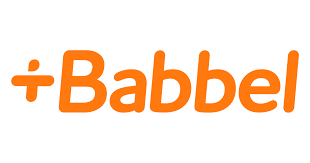Finding a job after earning your TEFL Certificate abroad

So you’ve decided to venture abroad to earn your TEFL certificate and begin your adventure teaching and traveling abroad. That’s great! You’re in for a culturally eye opening experience. In this article you will find help to get employment options upon receiving their TEFL Certificates.
Take a look, let it sink in, and get to work. If you follow these steps below, be persistent, positive, and proactive, you should have no problem finding a job in the country of your choice. Having the entire world at your fingertips is quite an exciting feeling and during this journey, you’ll learn so much about not only other cultures and lifestyles, but also about yourself.
First off, it’s very important to be tolerant, flexible, and have an upbeat attitude. I’m a big advocate of positivity and visualization, so if you can convince yourself that you’ll find a job and remain positive, odds are, you will.
Research English Language Jobs
Forums: Forums are a great way to search for answers to your questions about living and working in a foreign country. They have everything on these forums including hiring trends, typical salaries/rent costs, demeanor of the country residents, the expat communities, legal processes etc.
- Dave’s ESL Café has detailed, frequently updated forums . Look for “Stuff for Teachers” arranged by continent with country-specific information.
- Footprints Recruiting offers information on work abroad
- And of course Expat forums on EasyExpat.com
CV Advice: I’ll try to keep this short and sweet, starting with the top of your CV. You want to include your name, email, preferably foreign phone number, permanent address, current address abroad, age, sex, and nationality (example CV/résumé ). Employers generally like to see that you’re already abroad and you don’t hypothetically “plan” to be abroad.
Information to include:
- Highlight your TEFL experience first. Make sure you mention that your program was XX hours and contained XX hours of teaching, mention its accreditation, as well as a brief overview of the course content.
- List your relevant experiences. If you haven’t taught, no biggie! Just mention the experiences that highlight your people skills and ability to adapt, such as coaching, group counseling, voluntary work, etc.
- Provide your interests (if you play an instrument, have musical experience that looks especially good). For this section, the more unique the better!
- Include up to 3 references. It is particularly important that at least one has seen you teach.
Find Work
Warm-up letter: There are certain geographic areas such as Western Europe, South America and Central America, where the best way to get a job is just to go there directly and apply in person. Oftentimes, students will express interest in working in South or Central America and the first question from the potential employer will generally be “ok, so when can you come in for an interview?” One way to stick out in the minds of potential employers (despite not being in the country) is by writing a warm up letter expressing your intention to present yourself in person in a few weeks or even months. This is also a good thing to do if you don’t think you have the credentials to necessarily “wow” potential employers.
Follow up: In this industry, it’s very important to follow up. It’s as simple as that. If you submit a questionnaire, CV, cover letter, sample lesson plan, or even something as simple as an inquiry, it’s important to follow up within a week just to check in and make sure they received it. Here in the Czech Republic, the service industry isn’t always as fast as in places like the United States, but a simple reminder of your interest and your name is sometimes all they need to get back to you.
Get Registered: Have you ever subscribed to email notifications or joined a job distribution list? Well, you can do the same here in the TEFL world. You can register yourself as a job seeker on sites such as Dave’s ESL café so that employers can contact you directly. If you’re doing this, be specific with your objective! Otherwise you’ll get a ton of junk mail.
Be Entrepreneurial: If you’re highly self motivated and entrepreneurial in nature, there are many ways to succeed as an entrepreneurial, independent English teacher abroad. What you can do is reach out to local businesses, restaurants, etc. available on the expat websites for the country where you’re working, contact them directly, and offer to serve as their in-house English teacher. You can develop a program for them, choose your rates, and be persistent! A huge selling point for this is that you cut out the middle man. They no longer have to pay language schools to outsource teachers when they have their own in-house language teacher! From there, it’s up to you to sell yourself. Make business cards; highlight your TEFL experience, offer to speak to businesses where English is in demand, put flyers up at local coffee shops and grocery stores, and contact recruiting companies. There are a lot of opportunities out there!
Follow this advice, utilize the job guidance resources that are available at your TEFL school, and you’ll be on your way to starting your teaching and traveling abroad adventure!
By Justin Landis; an American writer and tennis professional who ventured to Prague over a year ago in search of a new adventure. He is currently a Job Guidance Coordinator for TEFL Worldwide Prague as well as a freelance blogger.
- My Life Abroad -
A selection of expat stories

"A fun compulsive read!"
J. Matcham, Amazon
"I strongly advise people ready to live abroad to read this book!"
Patrice, Amazon

 5 Top International Education Systems For Expat Kids
5 Top International Education Systems For Expat Kids Same language, different ball-game
Same language, different ball-game Guide to the Erasmus Programme
Guide to the Erasmus Programme Babbel
Babbel The Ultimate Guide: Buying Real Estate as an Expat
The Ultimate Guide: Buying Real Estate as an Expat  Basics to Real Estate Investing for the Long Term
Basics to Real Estate Investing for the Long Term